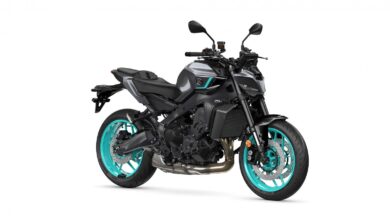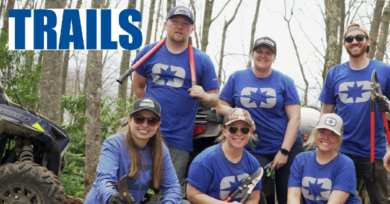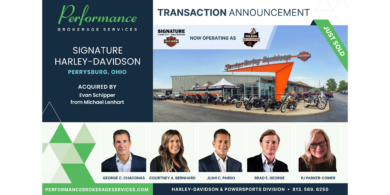OPINION – Why the powersports industry is not the car business
There is a lot more than just the number of wheels that set us apart.
To be sure, we have gleaned a lot from the auto world. What sets auto dealers apart from most retailers is the priority assigned to the sales department. They know they have to drive the sales process because, like us, for them the money is in the metal. Everything we do follows the sale of the unit. Motorcycle dealers who have learned that lesson and have control of the sales department control their own destiny and are far less likely to be subject to the whims of the marketplace.
The auto dealers developed the first F&I departments. It has taken awhile for us to get them firmly established in our business. Motorcycle dealers, who try to set up an F&I department without a controlled sales process in place, find they have placed the cart in front of the horse and have minimal success. The good news is good motorcycle dealers now can make more in F&I than the Ford dealer, and we can tie the customer to us with a priority maintenance plan.
So, yes, the auto dealer is focused on convincing the customer to buy the car in stock today. Good idea for motorcycle dealers, but there is one major difference that has to be recognized before you run out and do what the Ford dealer next door is doing. Hundred percent of the people visiting that Ford dealership are going to buy a car. They may not buy a Ford, they may not buy a new car, and they may not buy today, but 100 percent will buy a car. There is no need to sell the concept of the automobile or what it can do for you.
Judging by the traffic count (usually under reported) in motorcycle dealerships that I have monitored for many years, and considering the total number of motorcycles sold, I feel very safe in saying that the large majority of people who visit a motorcycle dealership never buy a motorcycle. For all of the analysis that is foisted upon dealers, the number that no one can tell you is how many bikes could we sell?
The astute dealers I work with today are not talking so much about advertising and promotion to generate more floor traffic, they are talking about how we convert more of what we are getting. Rather than wasting time talking about the discounter down the street, across town or on the Internet, we talk about capturing what the whole industry is spilling.
The sales process the Ford dealer uses will not work for us. It used to, when all we had to do was make it easy for the folks who had already made a buying decision. Making it easy to buy is a phrase I learned in the auto business and used extensively for many years in sales training. I even wrote a training manual by that name. Just making it easy for the customer who has made a buying decision is not enough to get it done today.
Like the lessons of the F&I department, the “4 square” and other negotiating techniques work well, if we first sell the motorcycle. Some of the best operators in the industry have found their write-up percentage has declined. The fundamental sales process, which is nothing more than taking a large decision and breaking it down to a series of easier decisions that lead to a sale, has not changed. The playing field has.
Since the majority of showroom visitors have not made a buying decision, we have to get that job done first, and we have to do it 100 percent of the time if we want to capture the 50 percent or more of the traffic we have been spilling.
The harsh reality is, as an industry, we have lived off customers who have already made a buying decision. For those customers, what happens at the Ford dealership will work. The really sad reality is, still today, the majority of people who visit a motorcycle dealership in the United States are not greeted on arrival. When they are, if they announce they are just looking, they are promptly ignored.
If I have learned nothing else from the call center I have operated in St. Croix for the past few years, it is that people really want to be sold. Yes, they have reservations and concerns and there are issues to be dealt with, but they really are hungry for someone to pay attention and sell them on just what they can do with the expensive toys we sell.
We fight each other and get consumed by the hard-core price shoppers who are making the rounds. We respond to the hard buyers and tie up our frontline sales people, who are really not equipped to deal with them, while we ignore the folks who will get goosebumps and want to buy what we sell if we take the time to get them excited.
Today, the training I provide first focuses on being a good host. Make them feel really welcome, sell the fun and adventure. Talk at length about the product. This is not an automobile. They want to hear the specs and features. They want to hear about the events and things people are doing with their motorcycles. We have to be structured to deal with the price, payments and trade-in at the proper time and with our strongest sales personality asking for the sale.
Times have changed and, like Dorothy who told Toto they were not in Kansas anymore, we are not in the car business anymore, not that we ever really were.
Cheers, Ed. psb
Ed Lemco has been involved with the powersports industry for more than 30 years. Lemco, the former owner of Lemco Management Group, is the founder and executive director of the National Council of Motorcycle Dealer Associations. Lemco currently operates a call center for dealers in St Croix.




